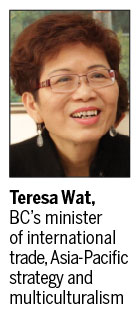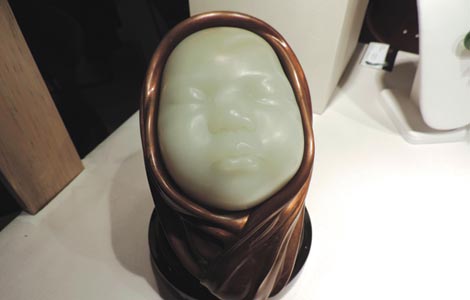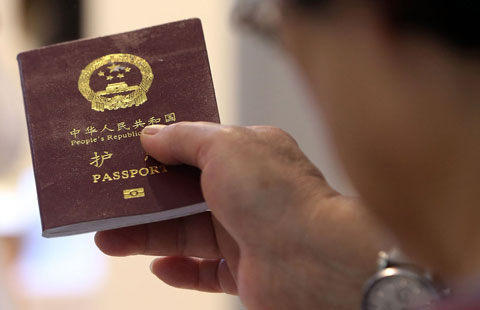BC finding new market in China
Updated: 2014-12-12 00:22
By MAYA LIU in Vancouver(China Daily Canada)
|
||||||||
Qingdao expected to work with province on marine science, tech
British Columbia, long a trade partner with China, has found a new city to do business with there.
Teresa Wat, the Canadian province's minister of international trade, Asia-Pacific strategy and multiculturalism, discussed the new cooperation between B.C. and the city of Qingdao in Shandong province.
The coastal city has the third-largest port in China, and there is a lot of space for cooperation between the two nations in marine science and technology, agriculture, international education and clean technology, she said.

Wat said that one of the major achievements of her mid-November trip was a Memorandum of Understanding (MOU) she reached on an economic partnership with Qingdao.
"It's Qingdao's first economic partnership agreement with a Canadian jurisdiction," Wat said.
More business deals are expected between Qingdao-based companies and BC businesses.
In 2013, BC's exports to China were valued at more than $68 billion, accounting for 30 percent of all Canadian trade with China. China is also the province's second-largest trading partner in the world.
The economic and job opportunities that China offers for B.C. are immense. On a state level, China is now indirectly responsible for about 500,000 Canadian jobs, and as BC's trade volume with China continues to rise, various sectors, including international education, technology, tourism, forestry, mining, energy and liquefied natural gas (LNG) already are benefiting or will benefit soon from the increasing number of investment ties.
The minister's recently concluded trade mission to China, Japan and South Korea was geared toward strengthening the relationship with BC's key Asian markets, and at the same time forming the new tie with Qingdao.
"The trade mission gave us an opportunity to continue attracting investment, generating B.C. business opportunities and promoting exports that help create jobs for all British Columbians," Wat said.
Delegates from more than 50 BC business and organizations joined Wat on the trip to China, and they met with Chinese government ministries and private companies' representatives.
Wat said the key markets in China deserve a lot of attention and sincerity. As challenges may be unavoidable in any trade relationships, Wat pointed out that "one of the best ways to overcome these challenges and improve bilateral relations is to meet with other governments in person".
Mutual agreements could be reached more easily as B.C. has deep historical and cultural ties with China. B.C. has a 20-year sister-province relationship with China's Guangdong province; and 11 percent of British Columbians today can trace their family roots to China, including Wat herself.
Wat said that Canadian Prime Minister Steven Harper's recent state visit to China also resulted in agreements between the two nations.
The most anticipated was a reciprocal currency deal between China and Canada. As the first offshore renminbi settlement center is set to be established in Canada, costs of business transactions between Chinese and Canadian businesses will go down significantly.
"A Canadian renminbi trading hub not only benefits BC, but all of Canada, by making it easier for Canadian businesses to do business in China," Wat said.
Another thing that attracted a lot of attention is that Harper began his China trip by meeting Chinese entrepreneur Jack Ma, the founder of Alibaba Group Holding Lt. Ma said during their meeting that he was considering opening an office in Vancouver.
"Attracting innovative, dynamic companies such as Alibaba to B.C. is what this ministry was designed to do and we look forward to working with the company to bring this to fruition," Wat said. She said also she hoped to work with Alibaba to further expand B.C.'s agriculture and seafood exports.
Harper also made an announcement during his visit to China that four new Canadian trade offices will be opened in the Chinese cities of Hangzhou, Xi'an, Xiamen and Tianjin, bringing the total number of regional Canadian trades offices in China to 15 – more than in any other country.
"We are already seeing the benefits of (establishing trade and investment offices in China)," said Wat. For example, the number of tourists from China who visited B.C. went up 21 percent in 2013, and that has either directly or indirectly benefited the approximately 18,000 tourism-related businesses in BC.
Another deal signed was the expansion of the Transit without Visa Program and the China Transit Program.
"Adding another airline (China Southern Airlines) to the program will increase the options for Chinese travelers to access the United States," said Wat, and these additional travelers will also help to ensure flights connecting China and Vancouver "are economically viable".
Contact the writer at readers@chinadaily.com.cn

 Momo gains in Nasdaq debut, with Alibaba aid
Momo gains in Nasdaq debut, with Alibaba aid
 Despite sales slump, fast food moves ahead in China
Despite sales slump, fast food moves ahead in China
 Jade carvers, experts find a forum in Canada
Jade carvers, experts find a forum in Canada
 BC promotes eco-tourism in China
BC promotes eco-tourism in China
 Getting to know emperors through their stuff
Getting to know emperors through their stuff
 Chinese passport opens more doors in 2014
Chinese passport opens more doors in 2014
 China faces: Glimpses of life and love
China faces: Glimpses of life and love
 Top 10 favorite gift brands of rich Chinese women
Top 10 favorite gift brands of rich Chinese women
Most Viewed
Editor's Picks

|

|

|

|

|

|
Today's Top News
China: Climate focus should be on Paris deal
Climate change agenda marches on, despite its obstacles
Baidu expected to take stake in Uber
Industry observer expects $60 crude to hold
China, US to tap trade, investment potential
Chinese brands face overseas challenges
Goal: coal to synthetic gas
Despite sales slump, fast food moves ahead in China
US Weekly

|

|







